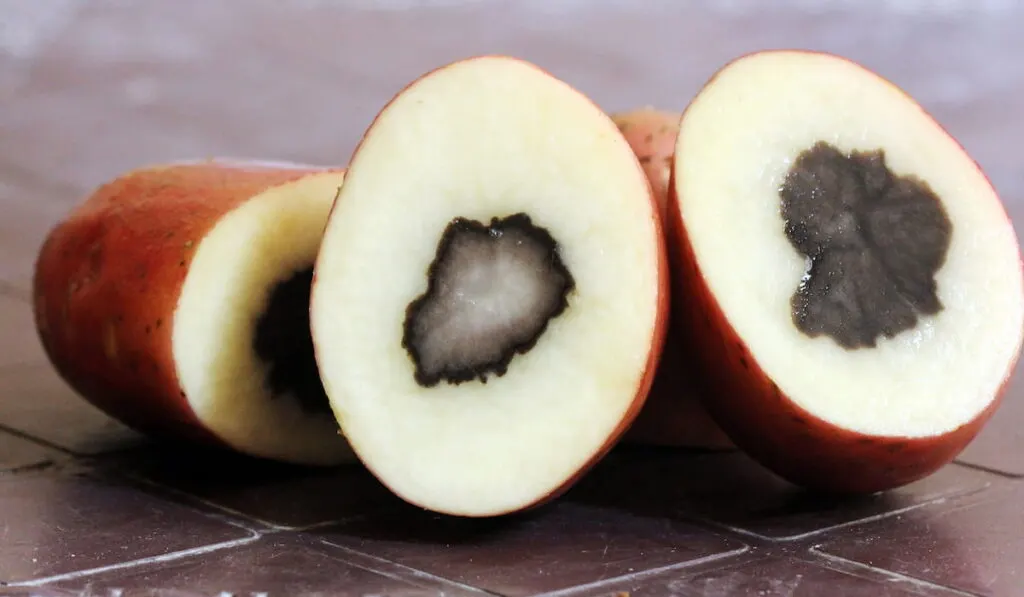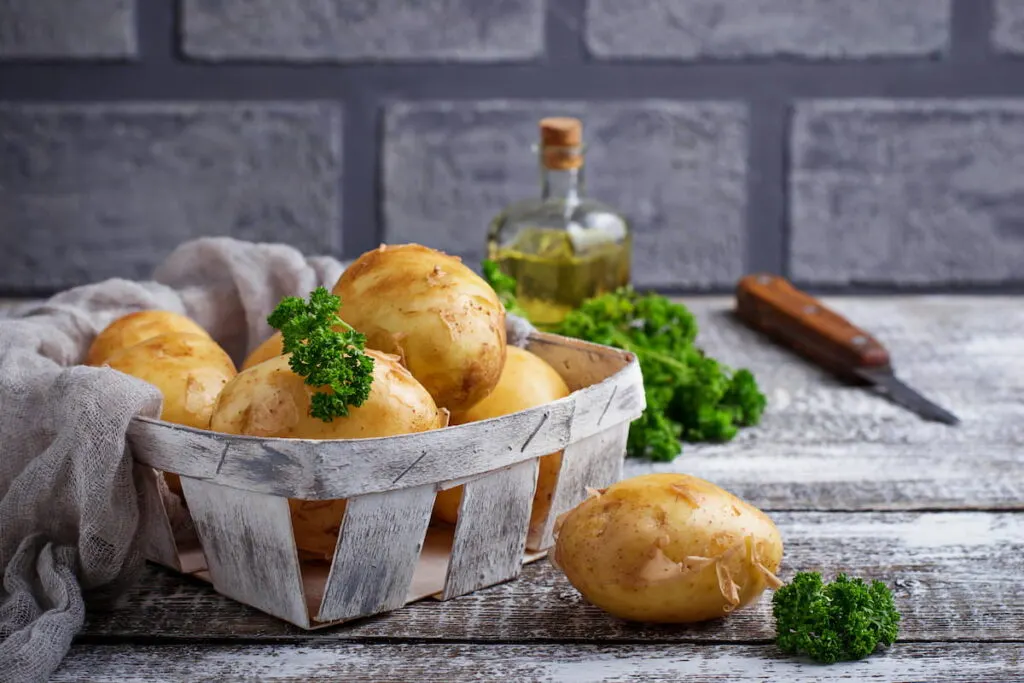Potatoes are a well-known vegetable around the world, and they are quite versatile. You can make mashed potatoes, potato chips, boiled potatoes, and so many other potato dishes from them.

While you might want to incorporate potatoes in a number of recipes, you always need to make sure you are using fresh ingredients. Surprisingly, there are many different reasons potatoes can go bad.
A potato’s life span depends on various factors such as how it is stored and whether it is cooked or uncooked. When potatoes are spoiled, they become unfit for cooking. Rotten potatoes can even potentially contain a high level of certain toxic substances.
How do you know a potato has gone bad, and how can you keep a potato from going bad quickly? Let’s take a closer look at how to keep this produce fresher for longer, and how you can avoid eating less-than-safe food.
Table of Contents
Signs a Raw Potato Is Bad
Raw or uncooked potatoes usually last from one week to several months. But if you suspect they have gone bad, check for the following:
- Raw potatoes should be firm when held. If the potato skin is not firm, then you should dispose of it.
- If your raw potatoes have a lot of bruises, blemishes, and black spots, then they are no longer safe to eat.
- If a raw potato is too soft and mushy, it is leaking moisture and is most likely spoiled.
- When potatoes are harvested, they have an earthly smell. Any other smell besides this, such as a rotten or musty odor, is a sign of spoilage.
- Sometimes a potato may look fresh and spotless but give off a foul odor. Such potatoes have internal blemishes that can only be seen when they are peeled.
Signs a Cooked Potato Is Bad
Detecting spoilage in a cooked potato is not quite as clear cut as detecting it in raw potatoes. However, if you have a cooked potato, and you suspect it is going bad, look out for the following:
- Spoiled cooked potatoes can give off a strong offensive odor.
- Never eat a cooked potato that has mold on it. Molds may appear as colored spots or fuzz.

Consume cooked potatoes within four days of cooking. If you store cooked potatoes in the freezer, ensure you recook them before eating. This helps to kill any bacteria forming on it. Potatoes can harbor some harmful bacteria without showing any signs, and this can result in food poisoning.
Are Soft Potatoes Bad?
When the potato skin is no longer firm, it is most likely going bad. But if the skin is not too wrinkled or too mushy, then it is still safe to eat.
If you later notice that the potatoes are losing water and are also shriveling, then you should throw them away.
Do Potatoes Go Bad When They Sprout?
When potatoes are harvested, they do not become completely inert. Sometimes they keep growing, and as they do, they develop sprouts known as eyes. This usually happens to potatoes sold on a farm. Those sold in supermarkets do not usually sprout since they are treated with chemicals that inhibit sprouting.
The sprouts should not be consumed because they are toxic and should always be removed. The growing sprouts indicate that the potatoes will soon expire and should be cooked immediately.
Potatoes with small sprouts can still be eaten. As long as they appear edible and smell fresh, all you need to do is remove the sprouts and eyes before cooking.
If the sprouts on the potatoes are as long as five inches or they show other signs of spoilage, promptly discard them.
Storing your potatoes in a dark place with no heat and sunlight is a good way to prevent them from growing sprouts.
How to Keep Potatoes Fresher for Longer?

Keeping your potatoes fresher for longer will give you more flexibility in the kitchen and safer produce to work with. Let’s look at some tips you can adapt to ensure that your potatoes stay fresh for longer periods.
- When buying your potatoes, pick the freshest, firmest produce in the store so that they last as long as possible.
- Store your potatoes in a cool, dry, and dark place.
- Do not exposed the potatoes to sunlight while they are stored. This helps to prevent solanine production, which can make them toxic.
- Do not store your potatoes in a plastic bag, as this will prevent them from breathing.
- Placing potatoes in an open container with air circulation.
- You can also store potatoes in a freezer, but keeping them in the freezer for a long time is not advisable. Cooler temperatures will turn the starch in the potatoes to sugar and make the potatoes darken faster.
- Remove the eyes on the potatoes before they turn to sprouts.
- Do not store potatoes near onions. Onions produce a gas that ripens potatoes faster.
- Consider canning potatoes to store them fresh for up to five years.
- Check any stored potatoes often and remove those that have gone bad. Bacteria that spoil potatoes can spread rather quickly.
Conclusion
Potatoes are known for having a good shelf life. How long they last is dependent on how well they are stored or how they are cooked. But as long as you provide the right conditions, your potatoes should not go bad quickly.
Resources
- https://www.healthline.com/nutrition/how-long-do-potatoes-last#signs-of-spoilage
- https://www.tipsbulletin.com/when-do-potatoes-go-bad/
- https://www.streetsmartkitchen.com/when-do-potatoes-go-bad/
- https://www.leaf.tv/articles/how-to-know-when-potatoes-go-bad/
- https://www.canitgobad.net/can-potatoes-go-bad/
- https://www.purewow.com/food/how-to-tell-if-potatoes-are-bad
